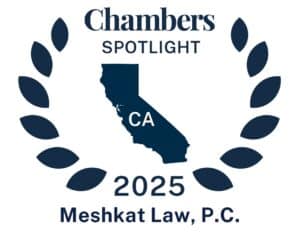For more than two decades United States persons that receive a boycott request fostered or imposed by a foreign country against a country friendly to the U.S. or against any U.S. person, have been required to report to the Department of Commerce’s Bureau of Industry and Security’s (“BIS”) Office of Antiboycott Compliance (“OAC”). This regulatory requirement in the antiboycott provisions of BIS’s Export Administration Regulations (“EAR”), was codified into law with the enactment of the Anti-Boycott Act of 2018 (the “Anti-Boycott Act”), 50 U.S.C. § 4841 et seq. However, it wasn’t until March 2024 that BIS began publishing a “Boycott Requester List,” which publicly identifies potential sources of such requests made available by the reports to the agency, in order to assist U.S. businesses in complying with the EAR’s antiboycott provisions in 15 C.F.R. Part 760.
Against the backdrop of increased enforcement by BIS of these provisions in recent years, exporters, financial institutions, and other service providers rely on this Boycott Requester List to assist in their compliance efforts. Consequently, a business whose name ends up on the List is likely to have its operations—especially cross-border transactions—considerably impacted. With BIS relying on U.S. persons reports pursuant to § 760.5 of the EAR to assemble the List, there is an appreciable risk for error and overcompliance, especially in consideration of the significant administrative monetary penalties that may be imposed for any violations. However, listed businesses can petition their removal from the Boycott Requester List with OAC, and indeed BIS periodically removes many listed businesses. This article provides an overview of the removal process, along with certain practitioner tips for counsel.
Step 1—Investigate the Reasons for Inclusion on the Boycott Requester List
As with removal requests from any U.S. government lists, it is advisable to first investigate why your business was added to the Boycott Requester List to begin with. Entities are added to the List because they’ve been identified as having made a boycott-related request in reports received by BIS in accordance with the reporting requirements for U.S. persons in 15 C.F.R. § 760.5. Therefore, any internal investigation should seek to determine whether your business was reported to BIS because its conduct was arguably within the scope of such requirements, or the addition was otherwise in error. In addition, a Freedom of Information Act (“FOIA”) Request to BIS should be considered to obtain copies of any disclosable portions of relevant reports that were made to the agency, or at least the administrative record assembled by the agency for purposes of the addition.
Scope of the Reporting Requirements
In conducting an internal investigation to determine the potential reasons for the addition of a business to the Boycott Requester List, it is important to identify who may have reported the business and why. The term U.S. person is very broad in scope in § 760.1 of the EAR, including for example “controlled in fact” foreign subsidiaries, affiliates, or other permanent foreign establishments of any entities organized under the laws of the United States. Therefore, even though it may appear that your foreign business does not engage in any dealings involving the U.S., other foreign businesses that you do deal with may satisfy this broad definition of a U.S. person that would otherwise be subject to the EAR’s reporting requirements for boycott requests.
The scope of the EAR’s reporting requirements in § 760.5 are rather extensive, and dare I say ambiguous at times (just read through the numerous examples of what is or isn’t reportable in Part 760). Nevertheless, the requirement states in short that a U.S. person who receives a request to take any action which has the effect of furthering or supporting a restrictive trade practice or boycott fostered or imposed by a foreign country against a country friendly to the U.S. or against any U.S. person must report such request to BIS, regardless of whether the action requests is prohibited or permissible under the EAR, except as provided in § 760.5(a). Given the broad and arguably non-comprehensive scope of this requirement, a high probability for erroneous reporting remains.
For these reasons, it is imperative to rely on the reporting requirements in § 760.5 and relevant definitions in § 760.1 in conducting an internal investigation. In addition, in the course of conducting any such investigation—especially if your business may itself be considered a U.S. person as defined in § 760.1(b)—you should consider also identifying any potential violations by your business of the EAR’s antiboycott prohibitions in § 760.2. Note that I’m not going to explore those prohibitions here, or the distinct but related Internal Revenue Service (“IRS”) reporting requirements for boycott requests.
FOIA Request
Subject to certain exceptions, reports of boycott requests received by BIS are to be made available for public inspection pursuant to 15 C.F.R. § 760(c) and § 4842(b)(2) of the Anti-Boycott Act. Therefore, submission of a FOIA request to BIS should be considered in seeking full disclosure—to the extent possible under relevant exemptions in 5 U.S.C. § 552(b)—of all relevant reports relating to the listed business. Since processing of FOIA requests can be lengthy in practice, awaiting disclosure prior to requesting removal with OAC may not be an effective strategy. However, such strategy will ultimately depend on the specific circumstances of each matter.
Step 2—Initiate the Removal Process with OAC
Neither the Anti-Boycott Act nor the EAR provide a formal process for entities on the Boycott Requester List to petition BIS’s OAC for removal from the List. However, an informal removal process is noted in the List itself and is duplicated in BIS press releases that have announced additions and removals from the List since its March 2024 implementation. Specifically, the List notes that “[i]f you believe that you have been listed in error or would like to discuss the listing, please contact OAC.” At a minimum, the petitioning party should be prepared to adequately explain why they believe the addition of their name to the List was in error, and/or why the circumstances resulting in their initial addition to the List no longer apply (e.g., credible steps taken to no longer request counterparties to comply with, further, or support an unsanctioned foreign boycott).
Step 3—Appeals
Without the implementation of any formal regulations by BIS in relation to the Boycott Requester List, including for additions to or removals from, it remains unclear what other administrative remedies remain in the event of a denial by BIS of an informal removal petition. Furthermore, given the relatively recent implementation of the List, there isn’t any precedent either as for potential judicial challenges to such denials. However, denials may be subject to the Administrative Procedure Act’s (“APA”) judicial review provisions in 5 U.S.C. §§ 701-706 (e.g., arbitrary and capricious” agency action).
The Anti-Boycott Act is part of the broader Export Control Reform Act of 2018 (“ECRA”), 50 U.S.C. Chapter 58. Although ECRA exempts the functions exercised under its Subchapter 1—which primarily relates to Export Controls as opposed to the Anti-Boycott Act in Subchapter II—from the judicial review provisions and other parts of the APA (See § 4821(a)), such exemptions do not necessarily cover administrative actions made in relation solely to the Anti-Boycott Act. Arguably, denials for removal from the Boycott Requester List would be a function exercised under Subchapter II, and not Subchapter I.
Furthermore, ECRA does provide a relevant exception for § 4843(c) of the Anti-Boycott Act from the noted APA judicial review exclusion in § 4821(a). Specifically, § 4843(c) provides that any civil penalty or administrative sanction (including any suspension or revocation of authority to export) under the enforcement related § 4843 of the Anti-Boycott Act is indeed subject to the judicial revision provisions of the APA. Being added to the Boycott Requester List is arguably a civil penalty or administrative sanction imposed under § 4843 (See also 5 U.S.C. § 551(10)), especially since §4843(d) authorizes the President to “…establish[] levels of civil penalty…”, and being added to the List is a form of penalty or sanction. For these reasons, whether a denial of a petition to be removed from the Boycott Requester List is subject to the judicial review under the APA—or even being added to the list to begin with if a listed entity seeks to forego the administrative removal process and straight to judicial review—remain a justiciable question, and should be considered as part of any relevant strategy in seeking removal from the List.
The author of this blog post is Kian Meshkat, an attorney specializing in U.S. economic sanctions, export controls, and anti-boycott matters. If you have any questions please contact him at [email protected].







